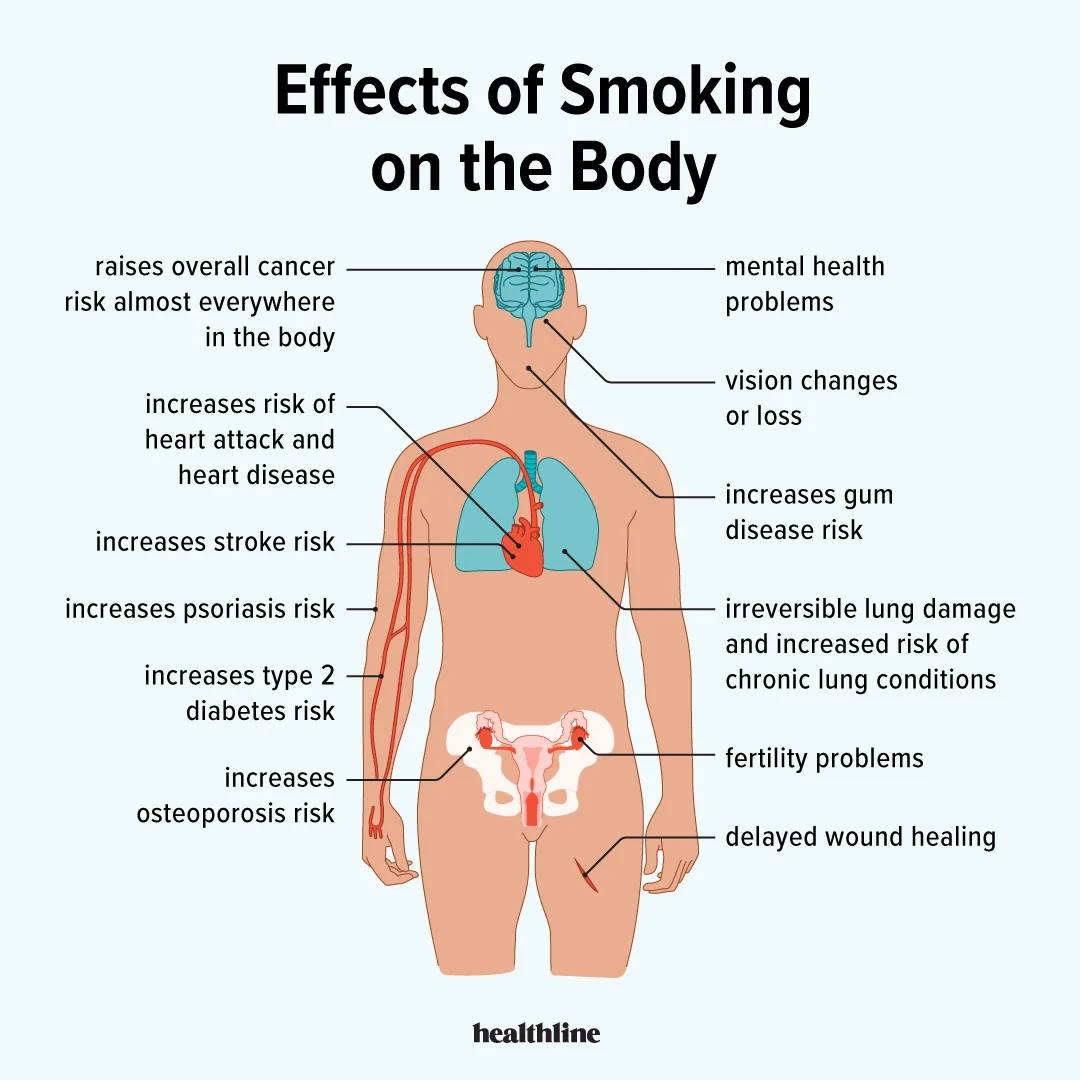“Can I use e-cigarettes while taking estrogen?” is a common question for those undergoing estrogen therapy, whether for menopause, gender-affirming treatment, or other medical purposes. While e-cigarettes are often considered less harmful than traditional smoking, there are still important considerations when combining them with hormone therapy.
In this article, we’ll explore the potential risks and how vaping may affect your hormone levels, cardiovascular health, and overall treatment outcomes. Let’s dive into the facts.

Table of Contents
1. The Health Effects of E-Cigarettes on the Body and Mind
Impact on Physical Health 🚶♀️
Respiratory System 🚨
- Toxic Chemicals: E-cigarette vapor, while free of many of the harmful substances found in traditional cigarettes, still contains nicotine, propylene glycol, glycerin, flavorings, and other chemicals that could harm your lungs 🌫️. Long-term inhalation may contribute to lung inflammation, airway constriction, and reduced lung function.
- EVALI (E-Cigarette or Vaping Associated Lung Injury): In the U.S., there have been severe cases of lung injury linked to e-cigarette use, particularly from black-market cannabis vapes 🍃.

Cardiovascular Health 💓
- Nicotine’s Effects: E-cigarettes often contain nicotine, which raises heart rate and blood pressure 💪. This could increase the risk of heart disease, stroke, and other cardiovascular issues over time.
- Vascular Damage: Studies suggest that e-cigarette use can reduce blood vessel function, potentially increasing the risk of conditions like atherosclerosis (hardening of the arteries) 🩸.
Cancer Risk 🧬
- While e-cigarettes do not contain the same carcinogens as regular cigarettes, they still release harmful chemicals such as formaldehyde, acetaldehyde, and acrolein, which could contribute to DNA damage over time, potentially increasing cancer risk 🦠.
Oral Health 🦷
- E-cigarettes may contribute to gum disease, oral ulcers, and teeth discoloration. Certain chemicals in e-cigarettes may also disrupt the balance of oral bacteria 🦠.
Immune System 🛡️
- Some chemicals found in e-cigarette vapor may impair immune function, leading to an increased susceptibility to infections and respiratory illnesses 😷.
Psychological Effects 🧠
Nicotine Dependence ⚡
- Addiction: Nicotine is highly addictive 🧠. Long-term e-cigarette use can lead to physical dependence, which could make it difficult for users to quit.
- Withdrawal Symptoms: Reducing nicotine intake might cause symptoms like anxiety, irritability, insomnia, and poor concentration 😣.
Mood and Mental Health 🌧️
- Anxiety and Depression: Research shows that nicotine can exacerbate anxiety and depressive symptoms over time 🥀. While nicotine may offer temporary relief or a “feel-good” effect, its long-term use may worsen mood swings and anxiety 🌫️.
- Cognitive Function: Chronic nicotine use can also impact memory, focus, and other cognitive functions 🧠, particularly in younger individuals 🧑⚖️.
Effects on Adolescents 🧒
- E-cigarettes are especially popular among teens, and using them can interfere with brain development, particularly affecting reward systems and emotional regulation. This may lead to issues with attention, learning, and emotional stability 🧠.
2. Why Are People Concerned About Using E-Cigarettes and Estrogen Together?
When someone is using estrogen—whether for hormone replacement therapy (HRT) or contraceptives—they might wonder if adding e-cigarettes into the mix is safe. This is a reasonable concern, as both estrogen and nicotine (found in most e-cigarettes) can have effects on the body that interact with each other 🔬.

Key Reasons for Concern 💡
Hormonal Balance and Body Response ⚖️
Estrogen is a key hormone that regulates a variety of body functions, including reproductive health and cardiovascular wellness. E-cigarettes, particularly due to their nicotine content, might influence how the body metabolizes estrogen 🧪. For example, nicotine can cause stress responses in the body, which might interfere with estrogen metabolism.
Nicotine and Estrogen Metabolism 🧬
Nicotine can alter the activity of liver enzymes that help break down hormones like estrogen. This could either speed up or slow down estrogen metabolism, leading to fluctuating hormone levels 🏃♀️. Such fluctuations could impact the effectiveness of estrogen therapies, like HRT or birth control 🌀.
Cardiovascular Risks ❤️
Estrogen plays an important role in maintaining heart health, especially in post-menopausal women. It helps protect against heart disease by improving blood vessel function and reducing cholesterol. However, nicotine in e-cigarettes raises blood pressure and heart rate, potentially undoing some of estrogen’s protective effects on the cardiovascular system 😔.
Potential Drug Interactions 💊
If someone is on other medications in addition to estrogen (like contraceptives or hormone replacement therapy), nicotine might interfere with how these drugs are absorbed, metabolized, or utilized in the body 🔄.
3. Can you vape while on estrogen?
3.1 Potential Benefits (Possible Upsides)
E-cigarettes may be safer than traditional cigarettes 🚭: E-cigarettes are considered to be much less harmful than traditional cigarettes. Cigarettes contain a range of carcinogens, tar, and harmful chemicals, while e-cigarettes, although still containing nicotine and some chemicals, do not involve combustion. This means e-cigarettes are generally less harmful to the lungs and cardiovascular system. For women who are on estrogen therapy, switching to e-cigarettes may be a “gentler” alternative to smoking. 🙌
Nicotine in e-cigarettes may not directly affect estrogen therapy 🧪 :Currently, research has not shown that the nicotine in e-cigarettes directly affects estrogen levels in the body. Estrogen is regulated by the endocrine system, and while nicotine does impact the nervous and cardiovascular systems, there is no strong evidence suggesting that it significantly alters the metabolism of estrogen or interferes with estrogen therapy. Therefore, if you’re on estrogen treatment, the risks of using e-cigarettes may be relatively low. 💊
E-cigarettes may reduce the health risks of traditional smoking 🫁: For women who smoke and are also on estrogen therapy, switching to e-cigarettes might help reduce the health risks associated with traditional cigarettes. Traditional cigarettes contain tar, heavy metals, and other harmful substances, which increase the risk of diseases like heart disease and lung cancer. While e-cigarettes are not without risk, they are considered less harmful. Therefore, switching to e-cigarettes might be a way to mitigate the dangers of traditional smoking. 👩⚕️
3.2 Potential Risks (Downsides)
Nicotine may influence estrogen metabolism 💉: Nicotine, a key ingredient in e-cigarettes, can affect the metabolism of various substances through liver enzymes. Estrogen is metabolized in the liver, so nicotine could potentially speed up or slow down this process. This could cause fluctuations in estrogen levels, which might affect the effectiveness of estrogen therapy. For those relying on estrogen to maintain their health, nicotine-induced changes in estrogen metabolism could decrease treatment effectiveness. ⚖️
Increased cardiovascular strain ❤️: Estrogen has protective effects on the cardiovascular system, especially in postmenopausal women, helping to maintain vascular health and reduce the risk of heart disease. However, nicotine in e-cigarettes can increase blood pressure and heart rate. This stimulating effect of nicotine may conflict with estrogen’s protective cardiovascular effects, potentially increasing the overall strain on the heart and blood vessels. Long-term e-cigarette use could heighten the risk of cardiovascular disease, especially for women who are also using estrogen. 🫀
Nicotine may interact with other medications ⚠️ :Nicotine can interfere with the absorption, metabolism, or effectiveness of other medications. While studies on the interaction between e-cigarettes and medications are still limited, it’s already known that nicotine can affect the action of other drugs. If you’re taking any medication related to estrogen (such as birth control or hormone replacement therapy), using e-cigarettes might impact the effectiveness of these drugs, potentially reducing their benefits or increasing side effects. 📉
Potential extra strain on lung health 💨: Although e-cigarettes do not contain the tar found in traditional cigarettes, the chemicals in e-liquid (like propylene glycol and flavoring agents) may still place some burden on the lungs. Long-term use of e-cigarettes, especially in conjunction with estrogen therapy, could lead to chronic respiratory issues or negatively impact the immune system. While research is still ongoing, there are concerns about the long-term effects of inhaling these substances. 🫁
Lack of long-term research 📊 :There is still limited research on the long-term effects of e-cigarettes, particularly in relation to estrogen therapy. While some early studies suggest e-cigarettes are safer than traditional smoking, this doesn’t mean they are completely harmless—especially when used alongside hormone treatments. For women using estrogen, it is important to remain cautious and avoid over-relying on e-cigarettes, as there are still many unknowns about their long-term health impacts. 🔬
4. Estrogen and Cigarettes: What’s the Difference?
When comparing the effects of traditional cigarettes and e-cigarettes on estrogen, traditional cigarettes generally have a much stronger impact. The interactions between estrogen and these substances mainly involve hormone metabolism, cardiovascular health, and overall well-being. Estrogen plays a vital role in regulating women’s physiological and metabolic processes, while the components in both cigarettes and e-cigarettes—especially nicotine—can interfere with these processes. Here’s a closer look at how estrogen interacts with cigarettes and e-cigarettes:
4.1 Cigarettes and Estrogen Interactions
Cigarettes contain many harmful substances, with nicotine, tar, and carbon monoxide being the most notable. These substances can interact with estrogen in several ways:
Increased Cardiovascular Risks ❤️
- Cigarettes’ Impact on the Cardiovascular System: Smoking increases blood pressure, makes blood more viscous, and accelerates arteriosclerosis (hardening of the arteries), which puts extra strain on the heart. For women taking estrogen, smoking can undermine estrogen’s protective cardiovascular effects. Estrogen helps maintain vascular health and reduces the risk of blood clots, but smoking can counteract these benefits, increasing the risk of heart attacks, strokes, and other cardiovascular events—especially for women on long-term estrogen therapy (such as birth control or hormone replacement therapy). 🫀⚠️
Impact on Estrogen Metabolism 💊
- Cigarettes Accelerate Estrogen Metabolism: Chemicals in cigarettes, particularly nicotine, can influence estrogen metabolism in the liver through metabolic enzymes. This means that smoking women may have faster estrogen metabolism, leading to lower estrogen levels in the body, which could reduce the effectiveness of estrogen therapy. For example, smoking can accelerate the breakdown of estrogen in oral contraceptives, potentially leading to reduced contraceptive effectiveness. 👎
Increased Cancer Risks 🧬
- Cigarettes and Cancer: Smoking is closely linked to various cancers, particularly hormone-dependent cancers like breast and cervical cancer. The carcinogens in cigarettes may interact with estrogen, raising the risk of cancer. For example, smoking may promote the development of breast cancer by affecting estrogen’s role in the body, leading to cell mutations and tumor growth. 🎗️
Impact on Fertility 👶
- Smoking and Fertility: Smoking can interfere with female fertility by reducing ovarian function, disrupting menstrual cycles, and affecting ovulation, which can make it harder to conceive. Since estrogen plays a key role in reproductive health, smoking can impair estrogen’s functions, thereby affecting a woman’s ability to get pregnant. 💔
4.2 E-Cigarettes and Estrogen Interactions
E-cigarettes are considered safer than traditional cigarettes but still contain chemicals that could impact estrogen and other aspects of the body. The most significant substance in e-cigarettes is nicotine.
Nicotine’s Impact on Estrogen Metabolism 💉
- Nicotine Interferes with Estrogen: The nicotine in e-cigarettes can also affect estrogen metabolism in the liver through the same enzymes that process many substances. Nicotine may accelerate estrogen metabolism, lowering estrogen concentrations in the body, which could reduce the effectiveness of estrogen-related treatments, such as hormone replacement therapy (HRT) or birth control. Therefore, regular use of e-cigarettes might interfere with estrogen’s action, similar to traditional cigarettes, but likely to a lesser extent. 👎
Cardiovascular Strain 🫀
- E-Cigarettes and Cardiovascular Health: While e-cigarettes don’t contain the tar and harmful combustion products of traditional cigarettes, they still contain nicotine, which can stimulate the heart, raising both heart rate and blood pressure. For women using estrogen, this could increase cardiovascular risks, especially for those with underlying heart disease or hypertension. Moreover, other chemicals in e-cigarettes, like flavoring agents, may also put additional strain on the cardiovascular system. ❤️🩹
Hidden Risks for Lung Health 🫁
- Long-Term Risks of Inhalation: While e-cigarettes don’t have as many carcinogens as traditional cigarettes, the chemicals in e-liquids (such as propylene glycol and flavorings) may still have long-term effects on lung health. For women on estrogen therapy, chronic exposure to these substances could weaken the immune system, affecting the body’s ability to repair itself and potentially leading to respiratory diseases. 🫣
4.3 Traditional Cigarettes vs. E-Cigarettes: Which Has a Bigger Impact on Estrogen?
Traditional Cigarettes Are More Harmful: Traditional cigarettes contain a significant number of harmful chemicals, including tar, nicotine, and heavy metals. These substances enter the body through the respiratory system and have long-lasting negative effects on health. For women taking estrogen, smoking increases various health risks, particularly cardiovascular risks. The harmful substances in cigarettes interact with estrogen, disrupting estrogen metabolism, which can decrease the hormone’s effectiveness.
Cardiovascular Impact: Chemicals in cigarettes increase the risk of heart disease and stroke, while estrogen provides cardiovascular protection. Smoking diminishes estrogen’s protective effects, increasing the risk of blood clots and other cardiovascular events.
Blood Circulation & Estrogen Metabolism: The chemicals in cigarettes promote inflammation and can affect liver enzymes that break down estrogen, causing unstable hormone levels and affecting the overall treatment outcomes. 💔
E-Cigarettes Have a Smaller but Still Noticeable Impact:While e-cigarettes are considered milder than traditional cigarettes, they still contain nicotine, flavorings, and other chemicals that can have an impact on health. For women on estrogen therapy, the primary concern with e-cigarettes is nicotine, which affects the nervous and cardiovascular systems.
Nicotine’s Effect on Hormones: Nicotine in e-cigarettes may still accelerate estrogen metabolism, leading to unstable estrogen levels, albeit to a lesser degree than traditional cigarettes.
Cardiovascular Strain: While e-cigarettes don’t contain the same complex harmful substances as cigarettes, nicotine can still raise blood pressure and heart rate. Long-term use may contribute to cardiovascular strain, potentially interfering with estrogen’s protective effects. 💪❤️
5. What Are the Best Disposable Vapes of 2025?
Disposable vapes are becoming a go-to option for many users in 2025 due to their convenience and ease of use. With constantly evolving technology, it’s no surprise that some brands have made a major impact in the market. Among the top contenders are the Geek Bar Pulse, Geek Bar Pulse X, Geek Bar Hero 20000, and Raz DC25000. But which one stands out? Let’s dive into the features that make each of these vapes a favorite! 💨💥
1. Geek Bar Pulse🤔💨
The Geek Bar Pulse is one of the most loved disposable vapes in the Geek Bar series, known for its solid performance and stylish design. It’s perfect for users who crave convenience and a strong vaping experience. 🚬
- Nicotine Strength: Available in 5% or 20mg/ml, ideal for those transitioning from traditional cigarettes. 💪
- Geek bar Flavor Variety: Choose from a wide selection of flavors including fruity options, mint, and icy blends. 🍓🍏🍧
- Compact Design: Small, sleek, and easy to carry—perfect for users on the go. ✨
2. Geek Bar Pulse X 🚀🎉
The Geek Bar Pulse X takes the performance of the original Pulse and amps it up for an even better vaping experience. It’s designed for those who want something a bit more advanced but still easy to use. 🏆
- Flavor Options: Pulse X introduces more exciting flavor combinations, including fruit mixes, icy blends, and dessert flavors. 🍧🍓🍩
- Modern Design: A more futuristic, sleek look that not only works well but also looks great. 💎
- Smooth Experience: The airflow is smoother with larger clouds, providing a richer, more satisfying vape. 🌬️

3. Geek Bar Hero 20000 💥💨
The Geek Bar Hero 20000 is built for those who vape often and need a device with a larger capacity and extended usage. It’s the top choice for frequent vapers or those looking for a high-performance, high-capacity disposable. 💯
- Flavor Variety: Like the other Geek Bar devices, the Hero 20000 offers a wide range of flavors, including both classic and unique options. 🍉🍍🍒
- Futuristic Design: The Hero 20000 features a sleek and ergonomic design that fits perfectly in your hand, ideal for long vaping sessions. 🤩
- High Capacity: With a bigger e-liquid capacity, this device lasts longer before needing a replacement, perfect for heavy users. ⚡
4. Raz DC25000 💣💨
The Raz DC25000 is Raz’s flagship device, designed for users looking for super-sized capacity, longer-lasting performance, and rich flavor options. It’s a fantastic choice for those who don’t want to change devices frequently. 🌟
- Large Capacity: With around 16mlof e-liquid, the Raz DC25000 lasts much longer, reducing the need for constant replacements. 🛢️
- Wide Raz vape Flavor Range: Choose from a variety of fruity, icy, and dessert flavors that will keep you satisfied. 🍒🍫🍦
- Comfortable Design: It’s ergonomically designed for long-term comfort, so you can enjoy vaping for extended periods. 😌
5.1 Can You Use Geek Bar Pulse While on Estrogen Therapy?
This is an important question for those undergoing estrogen therapy (e.g., hormone replacement therapy). While there isn’t a lot of direct research on how vaping interacts with estrogen medications, there are some factors to consider. 🧬💡
Potential Risks of Using Geek Bar Pulse with Estrogen 🤔⚠️
Estrogen and Cardiovascular Health 🫀
Estrogen Therapy: Estrogen helps improve blood vessel elasticity and reduces cardiovascular disease risk. However, nicotine (found in vapes like the Geek Bar Pulse) causes blood vessels to constrict, increasing heart rate and blood pressure. This can counteract the heart health benefits of estrogen therapy, raising the risk of heart disease and stroke. 😬❤️
Nicotine and Estrogen Metabolism 🧑⚕️
Nicotine can affect liver enzymes, which process estrogen in your body. If you vape often, Nicotine could alter the metabolism of estrogen, making hormone therapy less effective. 🔄💊
Increased Thrombosis Risk 🩸
Both estrogen therapy and nicotine increase the risk of blood clots. For women with a history of clots or risk factors, vaping could make this risk higher. 💔
Mental and Emotional Health 🧠
Estrogen therapy is often used to stabilize mood swings, while nicotine (especially in high doses) may increase anxiety or mood swings, possibly interfering with the positive mental health effects of estrogen therapy. 😟
5.2 Is Geek Bar Hero 20000 Healthier Than Traditional Cigarettes?
While the Geek Bar Hero 20000 is often considered a “healthier” alternative to traditional cigarettes, it’s important to remember that vaping isn’t risk-free. However, compared to traditional cigarettes, it might pose fewer health risks in certain areas. 🚭➡️💨
No Tar or Carbon Monoxide 🚫💨
Traditional Cigarettes: When tobacco burns, it produces tar, carbon monoxide, and a host of other toxic chemicals that damage the lungs, heart, and overall health. These are linked to lung cancer, heart disease, and COPD. 💔🫁
Geek Bar Hero 20000: By heating nicotine salts instead of burning tobacco, Geek Bar Hero doesn’t produce these harmful substances. This lowers the risk of serious lung and heart issues. 🌬️💨
Reduced Harmful Chemicals 🧪
Traditional Cigarettes: Smoking releases over 7,000 chemicals, many of which are cancer-causing. 🤯
E-Cigarettes: The liquid in vapes generally contains nicotine, propylene glycol (PG), vegetable glycerin (VG), and flavorings, and typically lacks the carcinogens found in cigarette smoke. Although vaping isn’t completely safe, it poses less risk than smoking. 🌱
Less Harmful Secondhand Smoke 🏙️
Traditional Cigarettes: Secondhand smoke is a major health hazard for non-smokers, including children and pregnant women. It can cause respiratory diseases and even cancer. 🚭💔
E-Cigarettes: Vaping produces vapor, which contains fewer harmful substances, thus significantly reducing the risks of secondhand smoke exposure. 🚶♀️💨
Oral and Respiratory Health 😷🦷
Traditional Cigarettes: Cigarette smoke contains toxic substances like tar that build up in your mouth, lungs, and throat, causing diseases like gum disease, lung cancer, and throat cancer. 🚬💀
Geek Bar Hero 20000: While vaping may still impact the respiratory system, it doesn’t introduce harmful substances like tar, making it a less damaging option. But remember, vaping can still cause irritation in some users. 🌬️💡
6. How E-Cigarettes Affect Special Populations Using Estrogen: Different Reactions
When special populations use estrogen (for example, estrogen replacement therapy, menopause symptom treatment, or gender-affirming hormone therapy), combining it with e-cigarettes (especially those containing nicotine) can lead to different reactions. The effects of e-cigarettes, especially nicotine, on health are widely discussed, and the way estrogen interacts with the body can also influence how e-cigarettes affect individuals. Below are some specific responses in different populations:
1. Postmenopausal Women 👩🦳
- Cardiovascular Health Risks ❤️🩹: Estrogen replacement therapy (HRT) can impact cardiovascular health, and some studies suggest it may increase the risk of blood clots. Nicotine in e-cigarettes can also increase the cardiovascular load, leading to higher blood pressure, faster heart rate, and vasoconstriction. Therefore, using e-cigarettes can further increase the risk of blood clots, heart disease, or stroke, particularly for postmenopausal women.
- Blood Circulation and Clotting 💉: HRT may alter blood clotting properties, and nicotine increases blood viscosity. When combined, these factors may raise the risk of clot formation, especially in those with high blood pressure or diabetes.
- Mental Health 🧠: Estrogen therapy helps regulate mood and alleviate anxiety, while nicotine affects the brain’s reward system and can lead to anxiety, depression, or emotional fluctuations with prolonged use. For women undergoing estrogen treatment, using e-cigarettes may interfere with emotional regulation and increase the risk of mental health issues.
2. Pregnant Women or Those Trying to Conceive 🤰
- Nicotine Effects 🚭: During pregnancy, nicotine intake can cause developmental issues for the fetus, including low birth weight, preterm birth, placenta abruption, and even miscarriage. While e-cigarettes don’t contain the tar and carbon monoxide found in traditional cigarettes, nicotine is still present and can negatively affect both maternal and fetal health.
- Hormonal Disruption ⚖️: Estrogen plays a crucial role in fetal development during pregnancy. Excess nicotine may interfere with hormone metabolism or blood flow, potentially disrupting placental function and maternal hormone levels, thus affecting the pregnancy process.
3. Transgender Women (Gender-Affirming Therapy) 🏳️⚧️
- Dual Cardiovascular Burden 💔: Estrogen therapy already has an impact on cardiovascular health, especially with certain types of estrogen (like oral estrogen), which can increase the risk of blood clots, heart disease, and strokes. Nicotine in e-cigarettes also raises cardiovascular risks, particularly increasing blood pressure, heart rate, and blood viscosity. Therefore, combining e-cigarette use with estrogen therapy may exacerbate cardiovascular health risks in transgender women.
- Liver Metabolism 🍷: Estrogen is metabolized in the liver, and nicotine can influence liver function, potentially altering the metabolism rate of drugs. This may lead to changes in estrogen levels, thereby affecting the efficacy of gender-affirming treatment.
- Addiction & Mental Health 🧠: Nicotine’s addictive nature may make quitting harder. Estrogen therapy can already affect mood and psychological well-being, and nicotine may exacerbate anxiety or other emotional issues, potentially impacting the psychological benefits of gender-affirming therapy.
4. Individuals with Estrogen-Related Conditions (e.g., Breast Cancer) 🎗️
- Nicotine’s Physiological Impact 🧬: Although e-cigarettes lack some harmful substances found in traditional cigarettes (like tar), nicotine may still impact hormone levels and physiological functions, especially in individuals undergoing cancer treatment that affects hormone balance. Nicotine may interfere with the effectiveness of anti-estrogen treatments by disrupting the endocrine system.
- Immune System 🦠: Chemicals in e-cigarettes may impair immune system function, reducing the body’s ability to fight infections or tumors. Women with breast cancer, in particular, need to maintain a strong immune system to resist complications from cancer or chemotherapy.
5. Other Health Conditions (e.g., Hypertension, Diabetes) 💉
- Blood Pressure & Blood Sugar 🩸: Nicotine is known to raise blood pressure and blood sugar levels, which can worsen symptoms in individuals with hypertension or diabetes. When combined with estrogen therapy, this interaction may increase cardiovascular risks for these patients.
- Increased Cardiovascular Risk 🏥: Nicotine causes blood vessel constriction, elevated blood pressure, and added stress on the heart. This effect, combined with estrogen’s impact on cardiovascular health, may increase the risk of heart disease, stroke, and other related conditions.
7. User Story: The Current Research on E-Cigarettes for People Taking Estrogen
Background:
Sarah is a 38-year-old transgender woman currently undergoing hormone replacement therapy (HRT), which includes daily estrogen supplements to support her gender transition. Along with HRT, Sarah has also been using e-cigarettes as a smoking cessation tool, trying to reduce her dependence on nicotine after quitting traditional cigarettes. However, she has started to wonder, “How does using e-cigarettes while taking estrogen impact my health?” She decided to research whether there are any existing studies on the potential interactions between estrogen therapy and vaping.
1. The Impact of Estrogen Therapy on Health 🌸
Sarah knows that estrogen therapy is essential for her transition, helping her feel more aligned with her gender identity and improving her overall well-being. Estrogen therapy plays a crucial role in regulating mood, relieving symptoms of hormone imbalances, and reducing the risk of osteoporosis by promoting bone health. However, Sarah is aware that estrogen can also have an effect on cardiovascular health and blood clotting, which can be a concern, especially for those with a history of blood clotting disorders.
2. E-Cigarettes and Their Popularity 🚬💨
E-cigarettes, often marketed as a safer alternative to traditional smoking, have become widely popular. They deliver nicotine in vaporized form without the harmful chemicals like tar and carbon monoxide found in combustible cigarettes. While e-cigarettes are generally considered less harmful than smoking, Sarah knows that they still carry risks, especially when it comes to the nicotine content and the long-term effects of inhaling vaporized chemicals.
3. The Current Research on Estrogen and E-Cigarettes
Sarah dives into the current research regarding e-cigarettes and estrogen therapy. While there is no comprehensive study focusing specifically on the combination of estrogen and vaping, she finds several key insights that shed light on potential risks.
Cardiovascular Health Risks 💔: Both estrogen and nicotine affect the cardiovascular system. Estrogen has been linked to an increased risk of blood clotting and stroke. Similarly, nicotine is known to raise blood pressure, heart rate, and cause constriction of blood vessels. Combining these two could potentially elevate the risk of cardiovascular events, such as heart attacks or strokes. This is a significant concern for individuals taking estrogen, particularly those who are also vaping.
Hormonal Interactions and Metabolism ⚖️: Some studies suggest that nicotine could interfere with the body’s hormonal balance, especially by affecting the liver enzymes that metabolize estrogen. This could alter the effectiveness of HRT, potentially making estrogen therapy less effective or causing fluctuations in hormone levels. Although there isn’t enough direct research on the interaction between nicotine and estrogen, this potential risk is something Sarah needs to consider.
Respiratory System Effects 🌬️: While e-cigarettes are generally less harmful than traditional cigarettes in terms of respiratory risks, inhaling vaporized chemicals may still cause lung irritation and other respiratory issues over time. If Sarah is using estrogen to improve her overall health, especially her bone density and immune system, vaping could negatively impact her respiratory health and counteract some of the positive effects of estrogen therapy.
4. What Experts Are Saying
Sarah realizes that while e-cigarettes may seem like a safer alternative to smoking, the risks are still not fully understood, especially when it comes to combining them with estrogen therapy. Some health experts recommend caution when using e-cigarettes while undergoing hormone replacement therapy.
Key advice includes:
Consult Your Healthcare Provider: Sarah speaks to her endocrinologist about her concerns. Her doctor advises her to monitor cardiovascular health closely, especially blood pressure and heart health. Regular check-ups are crucial to ensure that estrogen therapy is working as intended without adverse interactions from vaping.
Reduce Nicotine Intake: Experts suggest that Sarah should try to reduce the nicotine concentration in her e-cigarette liquids, as nicotine has the potential to increase risks related to both heart health and hormonal regulation.
Consider Alternatives for Quitting Smoking: While e-cigarettes can be a useful tool for smoking cessation, Sarah’s doctor recommends exploring other nicotine replacement therapies (such as patches, gum, or lozenges) that may carry fewer risks when used alongside hormone therapy.
5. Sarah’s Decision
After researching the issue and discussing it with her doctor, Sarah decides to reduce her nicotine intake by switching to lower-nicotine e-liquids and cutting back on her use of e-cigarettes. She also schedules regular check-ups to monitor her cardiovascular health and hormone levels.
8. How People on Estrogen Can Use E-Cigarettes Safely?
For individuals using estrogen therapy (such as postmenopausal women, transgender women, or those undergoing hormone replacement therapy), it’s crucial to consider how e-cigarettes might interact with their treatment. While e-cigarettes are generally seen as less harmful than traditional cigarettes, they still carry potential risks, especially when combined with estrogen therapy. Here are some health tips for safely using e-cigarettes if you’re on estrogen:
1. Understand the Impact of Nicotine 🔬
- Estrogen and Nicotine Interaction: Both estrogen therapy and nicotine impact the cardiovascular system. Estrogen can affect blood pressure and clotting factors, while nicotine accelerates heart rate, raises blood pressure, and increases blood viscosity. Combining the two may raise the risk of blood clots, heart disease, and stroke.
- Control Nicotine Intake: If you choose to vape, opt for e-liquids with low nicotine concentrationsto reduce the strain on your cardiovascular system. Avoid high-concentration nicotine salts (like 5% nicotine), which can be too harsh on the heart.
2. Choose E-Cigarette Liquids with Safe Ingredients 🧴
- Avoid Harmful Chemicals: Estrogen therapy can affect the immune system, so it’s important to choose e-liquids that are free from harmful chemicals like formaldehyde, acetaldehyde, and other potentially toxic substances. Be cautious of products with excessive flavoring agents that may irritate your airways.
- Select Quality Products: Stick with well-known brandsthat undergo strict quality control. Choose simpler formulations with fewer additives to minimize potential risks.
3. Monitor Cardiovascular Health ❤️🩹
- Cardiovascular Strain: Long-term nicotine use can increase cardiovascular risks, especially for those on estrogen therapy. Regular monitoring of blood pressureand heart rate is essential.
- Routine Health Checks: If you’re vaping and on estrogen, get regular checks for cardiovascular health, including blood clotting functions(e.g., platelet count, thrombotic risk factors). This helps detect any potential health concerns early on.
4. Avoid Overuse 🚭💨
- Control Usage: While e-cigarettes may be easier to regulate compared to traditional cigarettes, overuse can lead to nicotine dependence or toxicity. Control the frequency of vaping and avoid using e-cigarettes excessively.
- Quit Smoking Gradually: If you’re using e-cigarettes as a stepping stone to quit smoking, consider gradually reducing nicotine levelsover time rather than relying on vaping as a long-term habit.
5. Prioritize Respiratory Health 🌬️
- Impact on Airways: Even though e-cigarettes don’t contain harmful substances like tar and carbon monoxide, they can still introduce nicotine and other chemicalsinto the respiratory system. Some e-liquids contain ingredients that may irritate or cause allergic reactions in sensitive individuals.
- Low-Irritant Options: For those with respiratory concerns or sensitivity, choose e-liquids that are low in irritantsand avoid highly fragrant or strongly flavored options, which could irritate your airways.
6. Avoid Vaping During Pregnancy 👶
- Pregnancy Warning: If you are pregnantor planning to conceive, avoid both e-cigarettes and traditional smoking. Nicotine can harm fetal development, leading to low birth weight, preterm birth, and other complications.
- No Nicotine Vaping: Even low-nicotine e-cigarettes should be avoided during pregnancy. If you’re pregnant and vaping, consult your doctorto discuss safer options for quitting.
7. Consult Your Doctor 💬
- Medical Guidance: Always talk to your healthcare provider before using e-cigarettes if you’re undergoing estrogen therapy. Your doctor can assess the risks of vaping and provide personalized advice.
- Individualized Advice: People with specific health conditions, such as cardiovascular diseases, diabetes, or hormone-sensitive cancers, should receive tailored advice to minimize risks when using e-cigarettes.
8. Consider Vaping as a Smoking Cessation Tool 🚭
- Cessation Support: For individuals who have long been dependent on smoking, e-cigarettes might serve as a transitional toolto help quit. However, they should be used as part of a smoking cessation plan, not as a permanent replacement for traditional cigarettes.
- Gradual Nicotine Reduction: If your goal is to quit nicotine, consider gradually decreasing the nicotine concentration in your e-liquids to reduce dependenceover time.
9. Vape Shops Near Me: Why Choose Our Store?
Looking for a vape shop near you? Here’s why our store is the top choice for all your vaping needs:
1. Wide Selection of High-Quality Products 🌟
- We offer a vast range of e-cigarettes, e-liquids, and accessoriesfrom trusted brands to ensure you get the best vaping experience. Whether you’re a beginner or a seasoned vaper, we have something for everyone.
- From nicotine saltsto zero-nicotine options, we have all kinds of e-liquids in various flavors and strengths to suit your personal taste and needs. 🍓🍉🍦
2. Expert Knowledge and Friendly Service 👨🔬🤝
- Our team is composed of vaping enthusiastsand experts who are always ready to offer advice and answer your questions. Whether you’re new to vaping or looking for a specific product, we provide personalized recommendations to help you make informed choices.
- We take the time to ensure you fully understand how to use your vape device and how to choose the right products for your needs.
3. Competitive Pricing and Deals 💸💥
- We offer competitive pricingon all our products without compromising on quality. Plus, we regularly feature special discounts and promotions, so you can get the best deals on your favorite items!
- Keep an eye out for our loyalty programsand bulk buying offers to save even more. 🤑
10. Final Thoughts
E-cigarettes are often seen as a less harmful alternative to smoking, but they still carry risks—especially for people using estrogen or other hormonal treatments. While there is no conclusive evidence that e-cigarettes directly interfere with estrogen levels, nicotine can impact the metabolism of hormones and cardiovascular health. It’s essential to weigh the pros and cons and consult with a healthcare professional before making any decisions about using e-cigarettes while on estrogen therapy. Stay informed and prioritize your health! 💖You can search for our store at google.com.

